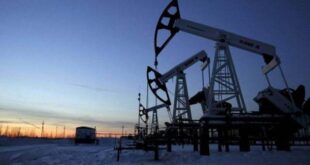Japan and China have held talks over the release of treated radioactive wastewater from the crippled Fukushima Daiichi nuclear power plant.
During the talks held in Dalian, northeastern China on Saturday, the two sides laid out their positions and exchanged opinions on technical matters concerning the treated water, Kyodo News reported, quoting a Japanese Foreign Ministry statement.
It was the first publicly acknowledged Japan-China dialogue on the level of experts on the issue.
The Japanese side reiterated that the water release is “safe and detailed ongoing radiation monitoring activities.” It was represented by officials from the Foreign, Economy and Trade ministries, as well as from the Nuclear Regulation Authority and plant operator Tokyo Electric Power Company Holdings Inc. (TEPCO).
Beijing was represented by experts from research organizations.
During talks in November, Japanese Prime Minister Fumio Kishida and Chinese President Xi Jinping agreed to find ways to resolve the issue through consultations and dialogue.
Japan began releasing treated radioactive wastewater from the plant last August, triggering a strong reaction from China and opposition parties in South Korea and the Solomon Islands.
Beijing banned seafood imports from Japan after Tokyo went ahead with plans to release the water. The plant has more than 1 million tons of treated wastewater to release in a 30-year process.
The plant was forced to shut down after facing the largest nuclear accident since 1986 in Chernobyl, following an earthquake and tsunami in 2011.
The operator last month said 5.5 tons of water, estimated to contain 22 billion becquerels of radioactive substances, had leaked from a building for treating contaminated water. The incident was caused by a worker’s error, but it had no impact on staff health or the environment outside the plant, it added.

 Iran Energy News Oil, Gas, Petrochemical and Energy Field Specialized Channel
Iran Energy News Oil, Gas, Petrochemical and Energy Field Specialized Channel



